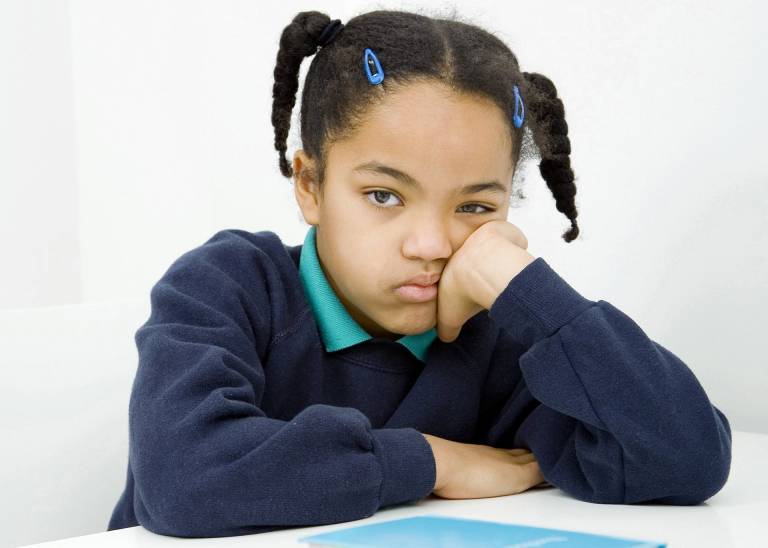As a way to understand the needs of my new students at the start of an academic year, I asked them to share with me, confidentially, something about themselves by completing the sentence, ‘I wish my teacher knew…’ which they then dropped in my ‘student voice’ post box. Though some of the responses where comforting (‘I love tea’), honest (‘I am awkward to deal with’), and inspiring (‘I am training to be a professional jockey’), a proportion were less so and on average about three to four pupils in each of my classes have admitted to dealing with anxiety, worry, stress or a mental health issue. Here some of the less distressing examples, which I have not included but have reported to the Child Protection Officer:
‘I worry how crappy the future seems.’
‘I worry over everything.’
‘I don’t deal with stress very well. It gets to the point when it makes me physically sick.’
‘I tried very hard last year and put as much effort in as I could. However, problems at home contributed to my bad exam grade.’
‘I’m very worried about the state of the world.’
‘I get down a lot.’
‘I feel stupid.’
‘I have low self-esteem.’
As a teacher who has only just come to terms with my own tumultuous adolescent years dropping out of sixth form, whilst my parents were divorcing, only to become a teenage mother at the age of 18, and thanks to the wonderful guidance of Charlotta Martinus, founder of TeenYogaUK, I feel I have some understanding of the reality of my students’ lives; however, I admit that too often I lose sight of this under the pressure to improve results and meet targets. ‘I wish my teacher knew…’ has become a useful grounding exercise to remind myself of how central their health and well-being is to the experience I provide for them in my classroom: I hope to adjust my student profiles online, find them the appropriate help, consider carefully the type of language I use in front of them and adapt my lessons accordingly.
As a teacher, I tend to forget how brave, unhappy or desperate young people are in the face of many social pressures and the activity made me think what private battles they are facing despite the front they present to the world. On reflection I can recall the odd comments dropped in staff room conversations – adolescents ‘have it too easy’, and they live in an ‘excuse culture’ where they are less likely to take ‘personal responsibility’. I know I have certainly being guilty of expressing such generalised opinions. This is understandable; the most challenging aspect of teaching is to engage and motivate students who sometimes can be difficult. However, through my training, study and practice of Mindful Yoga, I have learnt compassion in action. In being kinder to myself, and through powerful visualization exercises where I have embraced and forgiven my confused teenage self, I hope to become more understanding of my students, as well as introducing to them some of the Mindful Yoga practices that have helped me. In my experience it has been a life-saver.





